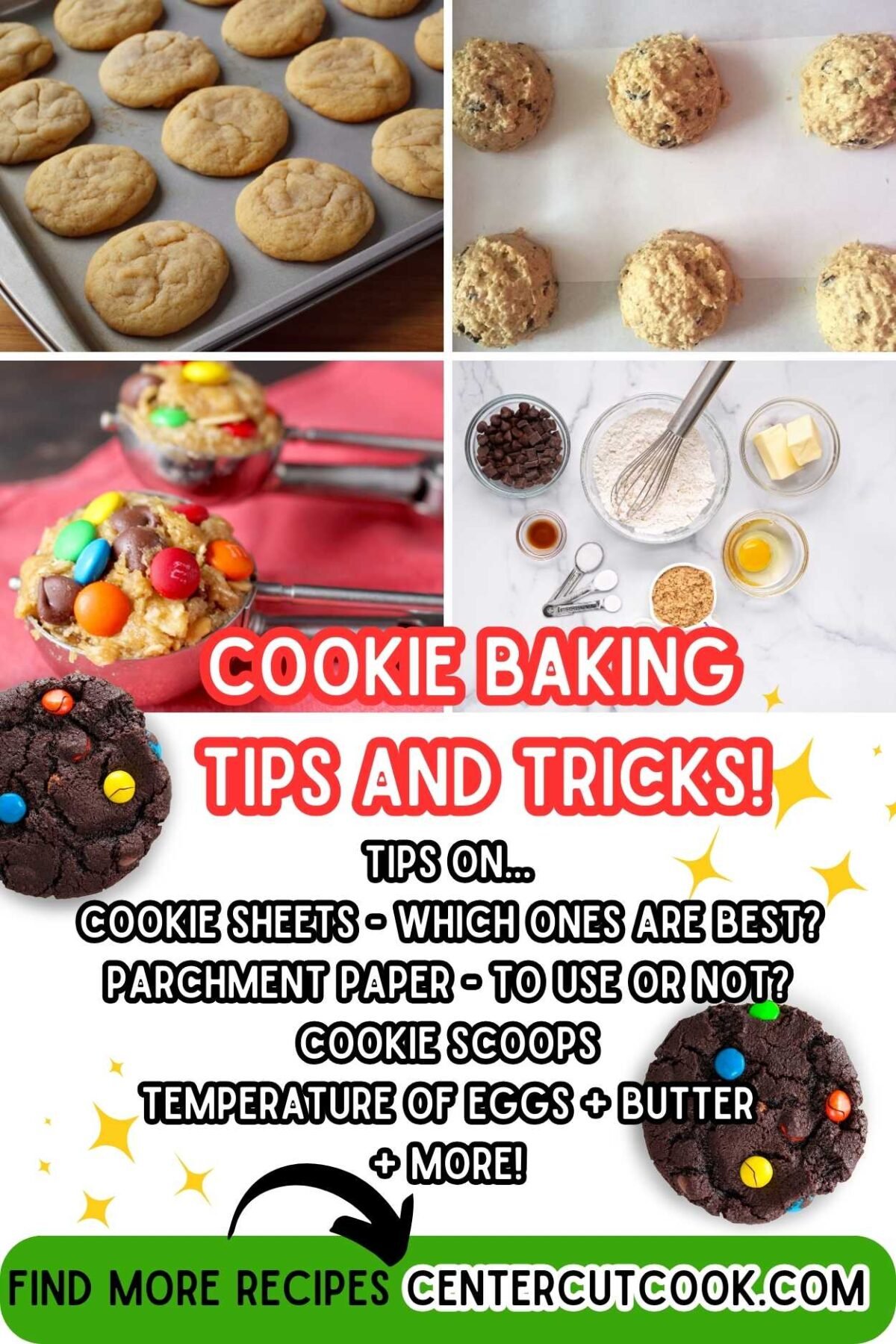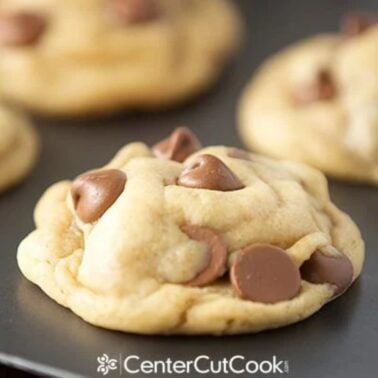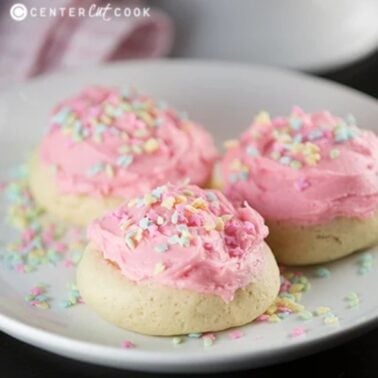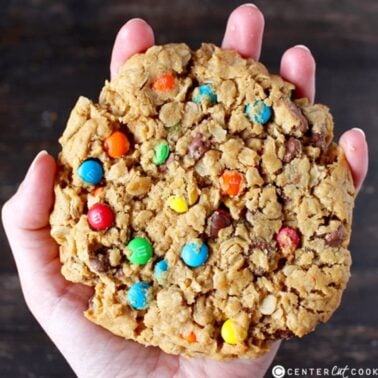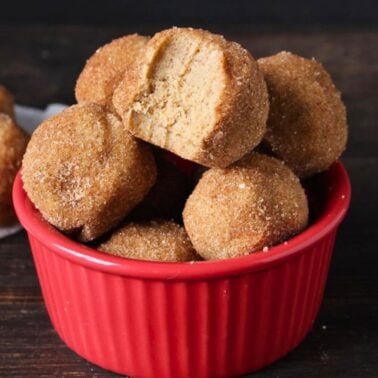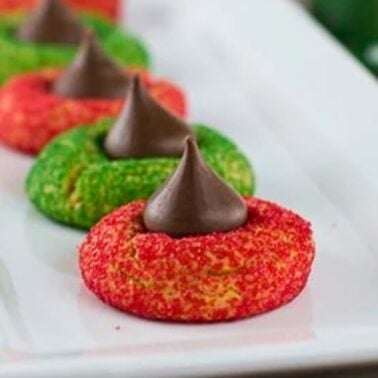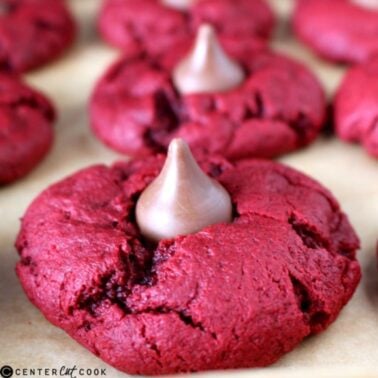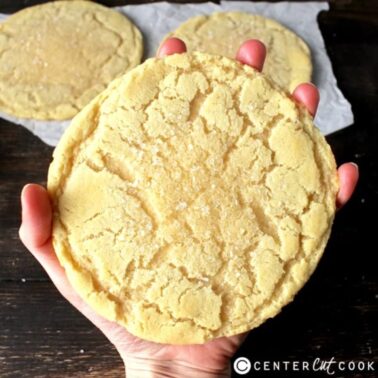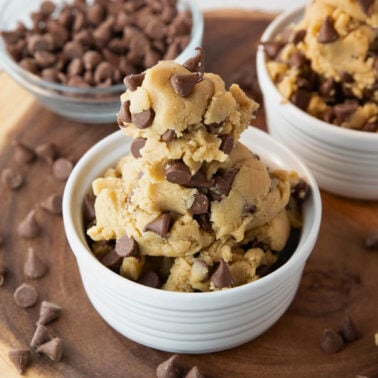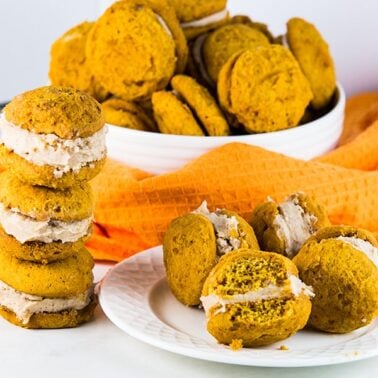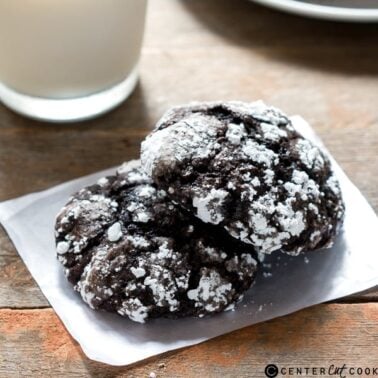This post may contain affiliate links. Please read our disclosure policy.
Cookie Baking Tips and Tricks to help you make perfect cookies every time including suggestions for cookie sheets, parchment paper and parchment paper substitutes, cookie scoops, and temperature for butter and eggs.
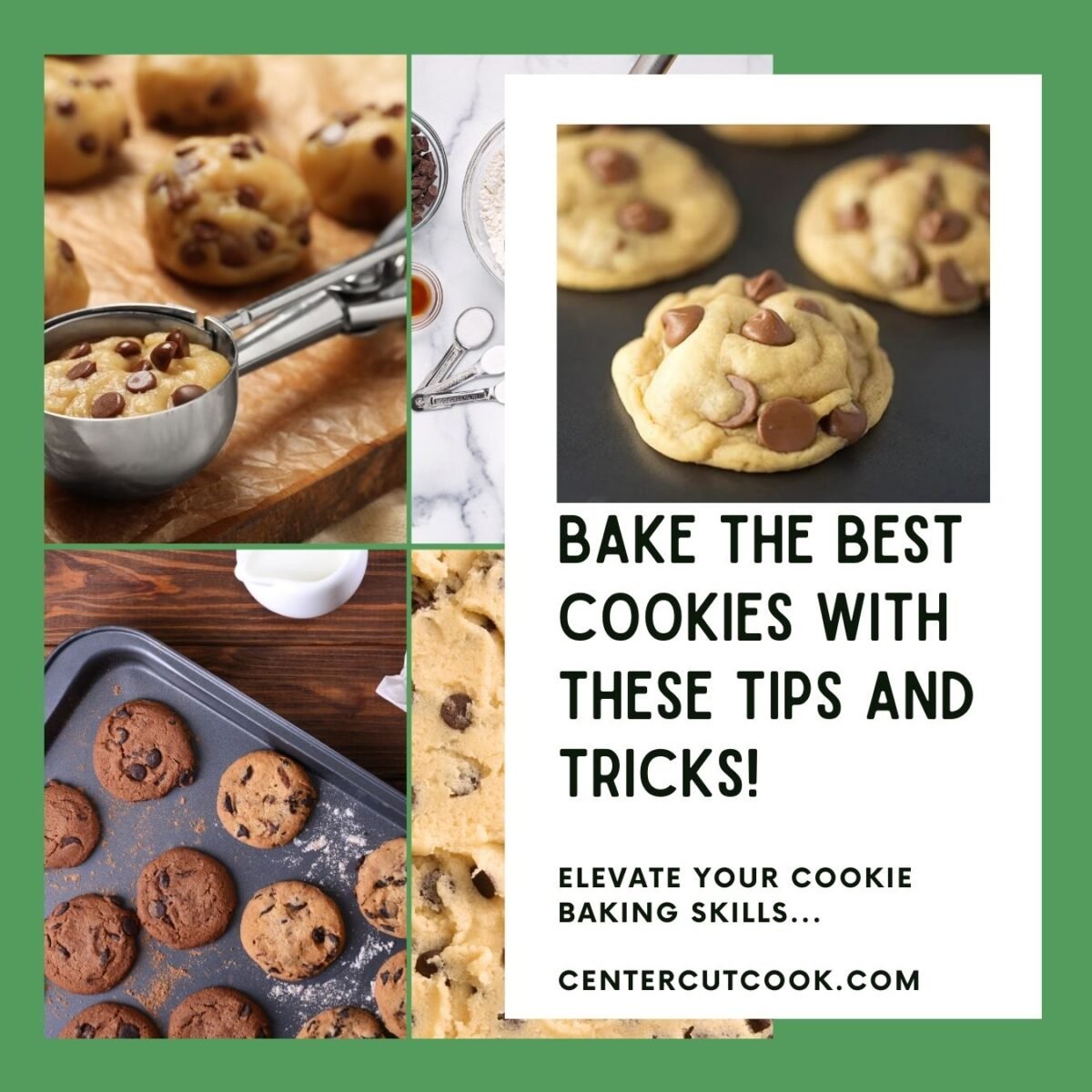
Cookies are so loved by everyone but making them with great results can be tricky! I want to share some of my best tips on baking cookies. Hopefully you will find them helpful and make baking much more enjoyable! Most people bake an extra large amount of cookies in December, but I think you’ll find this useful all year long. But first, have you tried some of our most beloved cookie recipes?
Our favorite cookies:
Cookie Sheet Tips
What kind of cookie sheet should you use for baking the best cookies? Invest in at least two decent cookie sheets. They don’t have to be super expensive fancy ones. I have two I really like and they were around $7 each. The material of cookie sheets do impact the outcome.
Materials:
- aluminum – aluminum cookie sheets evenly distribute heat well but you will want to make sure that you are using parchment paper because aluminum cookie sheets don’t have the same non-stick benefits of a non-stick coated pan.
- non-stick coated – my person favorite option for making cookies because they prevent the cookies from sticking to the pan.
- stainless steel – make sure to use parchment paper when using a stainless steel cookie sheet. While durable, this variety is not non-stick.
- insulated – this type has a layer of air between two sheets of metal. They aren’t ideal for making cookies.
Color – The darker the pan, the darker the cookies, so if you’re using super old pans that have been very used, your cookies will be dark on the bottom. It is worth it to buy new pans!
Size – The size of your cookie sheets doesn’t really matter. What does matter is how many cookies you plan to bake on the cookie sheet. Allow ample room between each cookie so that it has plenty of space to spread during the baking process.
Parchment Paper Tips
Parchment paper isn’t a requirement for incredible cookies but it can be beneficial. I haven’t always baked with parchment paper, but I never bake without it anymore. It helps the cookies keep their shape (not spread), never stick to the pan (yay!!) and helps with clean up. A quick wipe of the pans is all that is needed. It’s not only good for cookies, but it’s great for lining loaf pans or cake pans and makes clean up so easy.
Parchment Paper Substitute for Baking
If you do not have parchment paper on hand when you are baking, here are some parchment paper substitutes that you can use depending on what you’re baking. Specifically for cookies, if you do not have parchment paper, we recommend using a silicone baking mat or simply not using parchment paper at all. Here are some other suggestions for baking without parchment paper.
- silicone baking mat – silicone baking mats are reusable and non-stick which work perfectly when you are making cookies
- aluminum foil – aluminum foil can be used to line cookie sheets. Keep in mind that foil is not non-stick and you’ll want to spray it with non-stick spray.
- cooking spray or grease – a great substitute for parchment paper is simply to use a non-stick cooking spray.
- flour or cocoa powder – depending on the recipe, a light dusting of flour or cocoa powder (if making a chocolate recipe) works well. Be sure to shake off any excess flour or cocoa powder so that it does not impact the taste or texture of the recipe that you’re making.
- butter or shortening – butter or shortening is a good option when you’re making certain cakes or cornbread.
The solution that you choose will be dependent on what it is that you are baking!
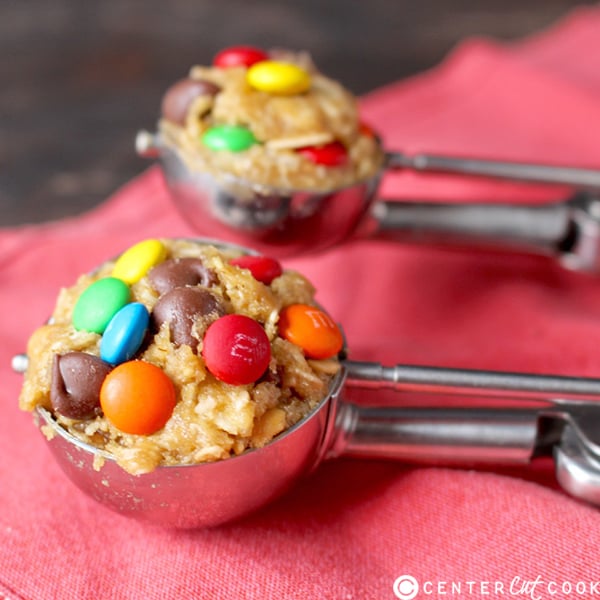
Using a Cookie Scoop for Cookies
I went without a cookie scoop for years. I didn’t think I needed one and just used a spoon. What that resulted in was uneven cookies, so they all baked differently. Some would be small and overdone, others would be big and underdone. The best way to make sure all the cookies are the same size is to use a scoop. It’s a inexpensive way to guarantee even cooking. It also saves time because you wont be trying to make the cookies all the same size.
Benefits of using a cookie scoop:
- consistent cookie size
- neat and clean
- efficient
- less handling
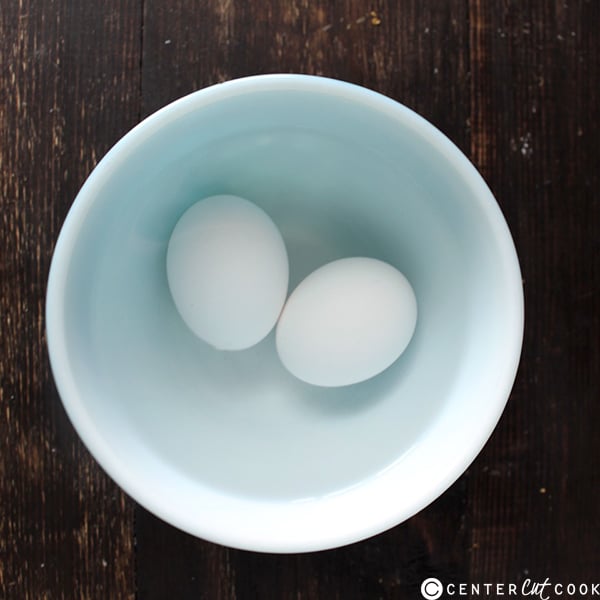
Room Temperature Eggs
Often times you will see that a cookie recipe calls for room temperature eggs. This offers several benefits including:
- Better incorporation: Everything blends together better at room temperature, but you probably aren’t always thinking ahead when you want to bake. A quick tip to get eggs to room temperature fast is to put them in a bowl of hot water for about 5 minutes. I just use tap water as hot as it gets, cover the eggs, and get the other ingredients around. By the time the eggs are supposed to be added- they’re room temperature.
- Better volume and texture – room temperature eggs trap air more effectively when beaten. This helps with volume and texture of a cookie.
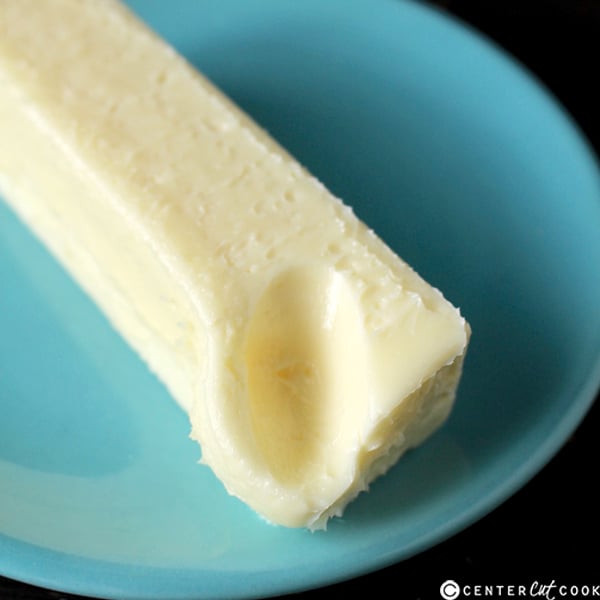
More Cookie Baking Tips….
Room Temperature Butter– this goes along with the eggs, but is even more important. Room temperature butter is necessary because it gets creamed with the sugar and if it’s the wrong temperature that will affect the cookies end result. Too cold and it won’t cream easily, too warm and the cookies will go flat. Because I bake so much, I always have a pound of butter on the counter and that’s my best tip. Leave it out if you know you’ll be cooking. If you do find yourself only with cold butter though, cut it into small pieces so it comes to room temperature faster. I’ve also placed it in a baggie and massaged it with my hands- letting my body heat soften it.
Under Bake the Cookies– this one is personal preference, but I always recommend baking for the minimum amount of time. They will continue to bake and harden as they cool, so if you take them out when they are you desired texture, they will become too hard as they cool. You can always put them back in for a minute or two, but once they’re over done, there is no going back. :)
Read the Recipe From Start to Finish– this may seem like common sense, but there is nothing worse than getting half way through a recipe only to realize that it needs to be chilled over night and you were planning to bring those cookies to a friends that night. I’ve learned my lesson the hard way on this one- it just takes a second and will make things much easier.
Use fresh baking soda and baking powder– if you only bake once a year you may want to replace your baking soda and baking powder. It’s not guaranteed to be bad, but why take the chance when it’s so cheap to replace? They have a shelf life of 6 months to 1 year, so if you’re questioning it, just buy new ones. Using old baking soda or powder will make your cookies flat and not rise.
Cookie recipes you need to try!
These are my favorite baking tips and things I have learned through out the years. Do you have any that I missed?
